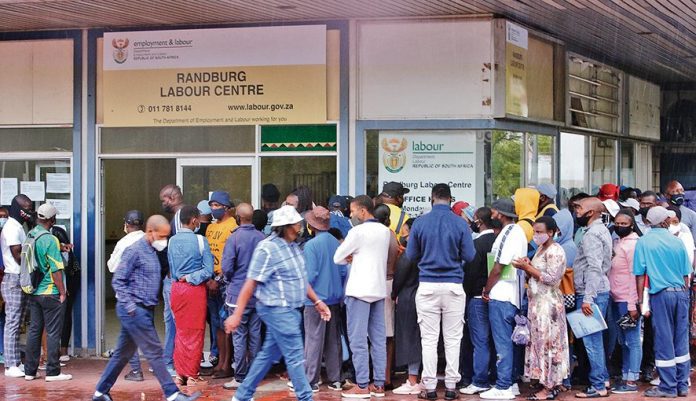Johannesburg – I grew up in the Apostolic Faith Mission Church.
From an early age at Sunday school, the 10 Commandments were drummed into our heads.
The commandments guide us to distinguish right from wrong. Our conscience tells us when we violate it and this happens more often than not.
If your conscience says this is not right, it is most probably a bad thing you are about to do.
“Do not steal” should constantly ring in the head of anyone in a position of responsibility. If anyone is a leader in the national, provincial, or local government, a company, or in a church, sports, or any other community organization, and they use that position to steal, they contribute to the erosion of our society.
There is no “excusable” corruption. Whatever the form of corruption, it is imperative that the perpetrators are pursued and face the full wrath of the law. It is only then that we can halt the pervasive rot in all sectors of our society.
Oliver Tambo once spoke so strongly about what constitutes a revolutionary. He said a revolutionary is distinguished and distinguishable from the criminal and the vigilante and follows certain strict rules of the revolution and obeys such rules.
Indeed, in the context of today’s conversation, values-based leadership should be distinguished and distinguishable from the rats and mice that masquerade as leaders in the world and eat away our future.
Global leadership must be believable and trusted by the people. Corruption, years of poor governance, and leadership failures have compounded the economic crisis that has beleaguered the growth and advancement we had envisaged in the early years.
In South Africa, and indeed in many other parts of the world, greed and corruption have created a credibility crisis in the government at the national, provincial, and local levels.
This is apparent in many spheres of the state, including the police and sections of the intelligence services, to the detriment of national security.
We are faced with completely broken and dysfunctional municipalities and state-owned enterprises. This frustrates what should be our objective to grow the economy.
The pursuit of wealth rather than a commitment to serving the people has created a malevolent culture in our society that is becoming more and more difficult to undo.
I have just exited from a position of heavy responsibility in the heart of government.
I once again feel like a war veteran, having had to lead the fight to protect public resources from abuse and waste.
This was not an easy responsibility. The demands on the fiscus in South Africa, as is the case in other parts of the world, are immense, particularly in the context of high unemployment and poverty levels.
We constantly have to balance the responsibilities to serve and protect the people of our countries (in general and particularly the poorer sections of our societies) with our broad objective to grow the economy and the tax base.
The Covid-19 pandemic ravaged our countries in many ways, particularly through the loss of lives and the negative impact on economic activity, resulting in massive loss of jobs, income, and livelihoods.
The deadly global pandemic also forced us into difficult decisions to reallocate budgets to fund the fiscal relief package and support our health system.
I must admit that these choices gave us sleepless nights. But people cannot be leaders without constantly making difficult decisions and making trade-offs in the interest of the greater good.
It is a great betrayal that our efforts to save lives and support livelihoods were undermined by shameful and exploitative acts of corruption.
All the systems we have in place to protect much-needed resources and prevent looting can only go so far when there are people who seek to manipulate processes to steal public funds.
Sadly, there are too many people in positions of leadership and power throughout the global political, economic and financial system who do not seem to realize the consequences of participating in or condoning corruption.
In South Africa, this is most apparent at the local government level, where budgets allocated for basic services are looted, causing people to live in inhumane conditions.
• Mboweni is the former minister of finance. This is an edited version of a lecture he delivered at Rhodes University on values-based leadership.

To read more political news and views from this week’s newspaper, click here.
Follow @SundayWorldZA on Twitter and @sundayworldza on Instagram, or like our Facebook Page, Sunday World, by clicking here for the latest breaking news in South Africa. To Subscribe to Sunday World, click here.
Sunday World



